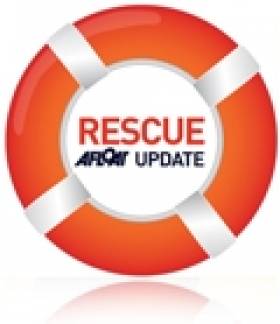Displaying items by tag: Communications
New Emergency Info System Put Through Its Paces
#Rescue - The Irish Coast Guard and the RNLI were among the emergency services putting some new communication technology to the test last month.
As Phys.org reports, the emergency exercise in Malahide Estuary was designed to test the effectiveness of REACT, or Resource for Emergency services to Access Command and control data using satellite and hybrid Technologies.
The system, funded by the European Space Agency (ESA), employs satellite, mobile and other communications systems to maintain a constant open channel between different response services, even if one network goes down during a crisis.
Rescue teams in the field can also remain in two-way multimedia contact with co-ordinators in the control room to ensure the right people are where they need to be as quickly as possible.
Ritchie Hedderman, head of operations at the Dublin Fire Brigade, which also took part in the exercise, said: "In the event of a major emergency, secure and reliable communications are vital to the emergency services.
"I feel that the satellite communications in time will prove to be the primary and preferred means for communicating as it can supply voice, video and data back to regional and national control centres where strategic commanders can assess situation on the ground and provide the back up resources in order that a successful conclusion to the emergency can be obtained."
Phys.org has much more on the story HERE.
Seawater Antennas Not Just Science Fiction
Communiations on the ocean could be vastly improved by a surprising method straight out of the sci-fi books - antennas made out of seawater (SEE VIDEO BELOW).
The US Navy is already engineering a revolutionary scheme to replace its bulky warship communications arrays with antennas composed of jets of seawater shot through electromagnetic hoops.
The salt in the water is the key component that allows the water jet to conduct electronagnetic signals just like a standard metal antenna. Frequency adjustments can be easily made by controlling the height and width of the water stream.
Popular Science speculates that the antennas could serve as compact emergency antennas for civilian watercraft or communication systems on offshore oil rigs.

























































